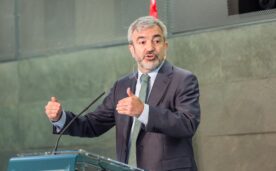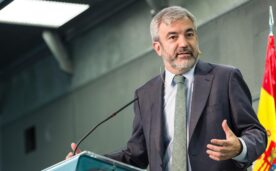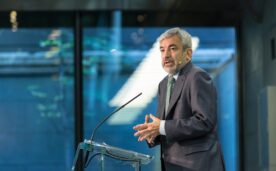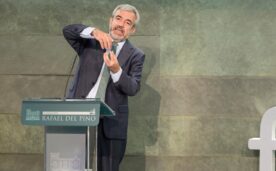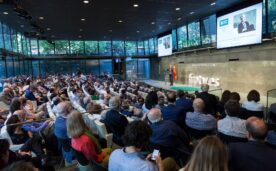What are the economic consequences of Brexit for Spain?
Summary:
On 29 May 2017, the Rafael del Pino Foundation organised a conference on the economic consequences of Brexit for Spain, given by Luis Garicano, Professor of Economics and Strategy at the London School of Economics. Garicano explained that the economic context had a lot to do with Brexit, a context of uncertainty and anxiety in the middle classes derived from globalisation and technological change that is replacing routine jobs with machines. All this has created a sense among the middle classes that their future is in danger and has allowed unscrupulous politicians to turn that anxiety into votes by offering simple solutions that solve nothing. The rise of populism has come as a huge surprise because it has emerged in places no one expected. This populism seeks to dynamite some of the basic consensuses of our societies and is seeking a return to the nation-state, to localism. But eliminating this whole world of international economic treaties is very risky. One of the manifestations of populism has been Brexit, which has had a lot to do with the anxiety of the middle classes. In the end, what Brexit was selling was that the middle classes were regaining control of their lives. Basically, the key problem of Brexit is the Single Market. In this sense, many thought that the British were going to seek a soft exit without touching the Single Market, by staying in it. Europe has long sought a Single Market. The fundamental obstacle to it is non-tariff barriers. To overcome these, a process of integration was set in motion in the 1980s through mutual recognition of legislation and legislative harmonisation. This process means that there is a court, the European Court of Justice, which decides what the laws are in England, which has been very controversial there. In this quest to regain control, Brexit has three elements of disagreement with the Single Market that are very important. Firstly, the free movement of people. The British want to remove this in order to control their borders. They also want to stop contributing to the EU budget and they want the jurisdiction of the European Court of Justice to end. The problem is that Europe is not willing to give in, especially on the Court, because you cannot have a Single Market with different rules in each country. The risk in all this is related to the fact that we have two years of divorce negotiations ahead of us and, once they are concluded, another two years to decide how we trade. But if you don't get the divorce settlement, you can't negotiate the trade agreement. And if there is no divorce agreement, after two years there is a radical break-up and the British no longer have access to the European market. The risk, therefore, is not a hard Brexit, but a break-up. And all this is creating a climate of opinion in the United Kingdom that does not facilitate a step backwards. The consequences for Spain will be worse the harder Brexit is. From the perspective of freedom of movement of people, there are 306,000 Britons living in Spain on a permanent basis, but if we add those who spend only part of the year here, the figure rises to one million people. Spaniards living in the UK number 100,000. We have many potential problems in relation to these people, such as visas, housing, health, pensions, ... In the field of trade, Spain has a lot to lose. We have a trade surplus with the UK of more than 1% of GDP. The British market is the fourth most important for our exports. And every year we are visited by 16 million tourists from there. To give us an idea, Brexit would mean an additional cost of 11% for Spanish wine sold in the UK. With regard to the free movement of capital, the UK has been the leading destination for Spanish foreign direct investment, with a significant presence in sectors such as energy, airports and banking.
The Rafael del Pino Foundation is not responsible for the comments, opinions or statements made by the people who participate in its activities and which are expressed as a result of their inalienable right to freedom of expression and under their sole responsibility. The contents included in the summary of this conference are the result of the debates held at the meeting held for this purpose at the Foundation and are the responsibility of their authors.
The Rafael del Pino Foundation is not responsible for any comments, opinions or statements made by third parties. In this respect, the FRP is not obliged to monitor the views expressed by such third parties who participate in its activities and which are expressed as a result of their inalienable right to freedom of expression and under their own responsibility. The contents included in the summary of this conference are the result of the discussions that took place during the conference organised for this purpose at the Foundation and are the sole responsibility of its authors.
